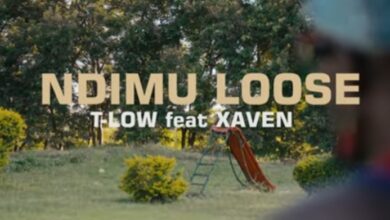T LOW URGES ZAMBIAN ARTISTS TO MAKE MUSIC IN ENGLISH OR ADD TRANSLATIONS TO REACH GLOBAL AUDIENCES

Singer T Low took to his Facebook to share an observation he made. The artist noted that Zambian songs rarely come with English translations or lyric videos on digital streaming platforms such as YouTube. Therefore, it makes it hard to export it.

The singer, whose catalogue is full of songs mostly sang Bemba, surprisingly called for Zambia artists to make music in English or at least include translations in order to bridge the gap for international listeners.
The talented artist reflected on the fact that English and Amapiano music sang in a foreign tongue thrive in Zambian clubs with listeners singing along word for word. “So maybe we have washed away all the minds that used to say an English composed song can’t be a BIG song Locally,” added T Low to solidifying his point.
“Are we just making music for the locals, or Zambia is bigger than what it’s been exporting for the past years?” asked T Low, who saw JayTrigga and Ari’s Nationality success as evidence enough that if Zambian music took that trajectory, it is capable of expanding its reach and export market.
The artist feels that the commercial sound saturation has hindered industry growth and overshadowed raw talent, suggesting that this approach will offer those artists a platform and allow for their full exploitation.
“By doing so, we will also provide a platform for the raw talent that hasn’t been exploited locally because the market only buys into commercial music hence having the same artists year in-year out, same sounds, same vibes,” lamented the artist.
The artist who hasn’t called for complete abandonment of making music in local languages further called upon all Zambian music industry stakeholders to play their role as the growth of the industry relies on their cooperation.
Many people agreed with his suggestion while others questioned how other genres such as Amapiano have managed to penetrate markets in which they don’t speak the language in used in songs further suggesting that authenticity should be maintained as foreign markets sometimes look for it.
What is your take? Do Zambian artists need to make music in English or use English translations in order to sell outside Zambia?





